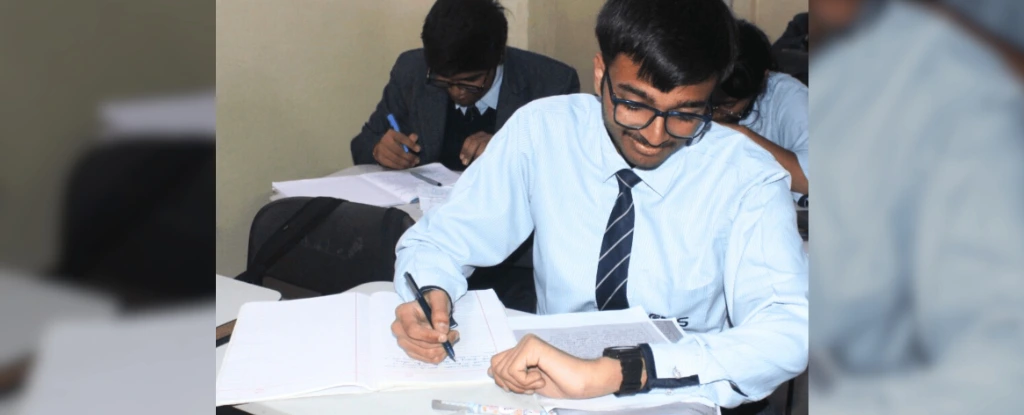Success in academics is not merely about long hours of study but about studying smart. Developing effective study habits can help students retain information better, manage their time efficiently, and perform well under pressure. Here are 10 effective study tips for academic success, designed to boost your productivity and help you achieve your academic goals.
1. Set Clear Goals
Define what you want to achieve in each study session. Setting specific, measurable, and achievable goals keeps you focused and motivated. For instance, instead of aiming to “study math,” target completing a specific number of problems or mastering a particular concept. Breaking tasks into smaller goals ensures steady progress and prevents procrastination.
2. Create a Study Schedule
Time management is crucial for academic success. Design a study schedule that allocates specific blocks of time for each subject or task. Use planners or digital tools to organize your day. Stick to the schedule as closely as possible to build consistency, ensuring that you balance academic work with breaks and other responsibilities.
3. Find Your Ideal Study Environment fo an Effective Study
Your study environment significantly impacts your focus. Choose a space that is quiet, well-lit, and free from distractions. Keep necessary supplies within reach to avoid unnecessary interruptions. For some, background music may enhance concentration, while others may prefer complete silence. Experiment to discover what works best for you.
4. Adopt Active Learning Techniques
Passive reading is often less effective than engaging actively with the material. Techniques like summarizing information, asking questions, or teaching concepts to someone else can deepen understanding. Using flashcards, creating mind maps, or solving practice problems are practical ways to reinforce learning and identify knowledge gaps.
5. Take Regular Breaks for Effective Study Sessions
The brain functions best when it’s rested. The Pomodoro Technique, which involves studying for 25 minutes followed by a 5-minute break, is a popular method to maintain focus while preventing burnout. Longer breaks after a few study sessions can further help in rejuvenating your mind.

6. Stay Organized
Organized notes and resources make studying more efficient. Use folders, binders, or digital apps to categorize subjects and keep materials in order. Highlight key points and create summaries to make review sessions quicker. An organized workspace can also reduce stress and enhance productivity.
7. Practice Retrieval
Testing yourself regularly improves memory retention and prepares you for exams. Practice by attempting past papers, answering review questions, or quizzing yourself with flashcards. This method strengthens your ability to recall information under pressure and highlights areas that need further revision.
8. Prioritize Difficult Topics
Tackling challenging subjects when your mind is fresh leads to better understanding. Early in your study session or during peak productivity hours, focus on topics you find difficult. Over time, this strategy boosts your confidence and ensures comprehensive preparation.
9. Adopt a Healthy Lifestyle
Physical health plays a significant role in academic performance. Regular exercise, adequate sleep, and a balanced diet improve concentration, memory, and problem-solving abilities. Drinking water and avoiding excessive caffeine during study sessions keeps you energized and alert.
10. Seek Help When Needed
Don’t hesitate to reach out for help if you struggle with certain subjects or concepts. Join study groups, attend extra classes, or consult teachers for guidance. Peer discussions can also offer new perspectives and enhance understanding.
Bonus Tip: Stay Positive
Maintaining a positive mindset is key to overcoming challenges and staying motivated. Celebrate small victories and remind yourself of your goals. Positive reinforcement builds confidence and keeps you on track.
Why These Tips Work
These 10 effective study tips for academic success are backed by psychological and educational research. Active learning, for example, promotes better retention because it engages different areas of the brain. Similarly, creating a routine trains your mind to focus during designated study times, making the process more efficient.
Conclusion
Academic success is achievable for anyone willing to adopt consistent and effective study habits. By incorporating these 10 effective study tips for academic success into your routine, you’ll not only perform better in exams but also develop lifelong skills in organization, critical thinking, and time management.
Whether you’re preparing for an exam, tackling a project, or simply aiming for overall improvement, these strategies will ensure you stay on top of your game and achieve your academic goals.
